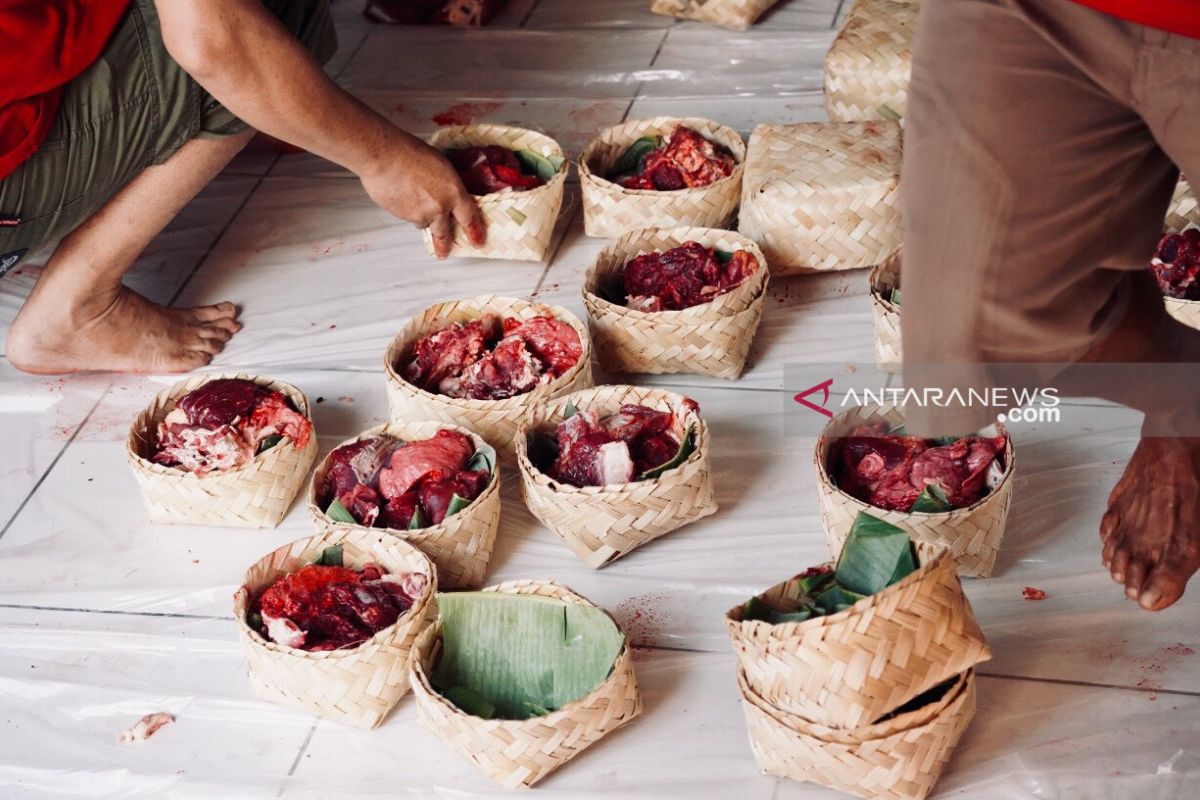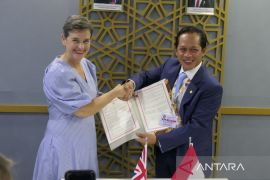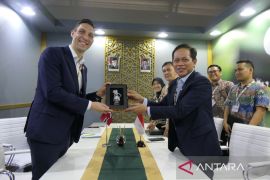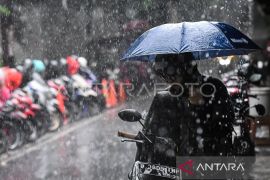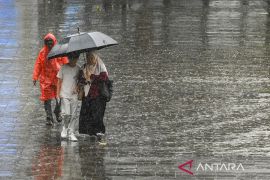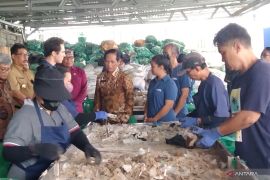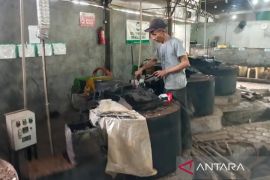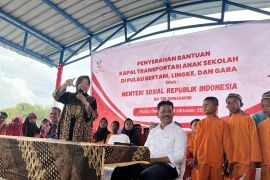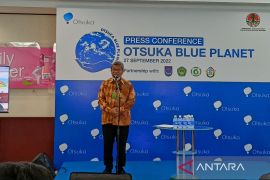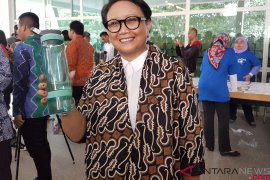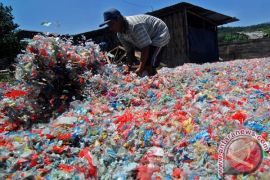The use of disposable plastic bags in Indonesia, with the largest Muslim population, as a container for qurban meat in Indonesia could result in additional waste during Eid Al-Adha.
Moreover, Capital Jakarta, the second-largest producer of plastic waste in Indonesia, discards seven thousand tons of garbage daily, with some 1,900 to 2,400 tons of it constituting plastic trash.
Hence, Pasar Jaya, a regional state-owned company, operating markets in Jakarta, has taken the initiative to replace plastic bags with more eco-friendly packaging in its 112 operated markets.
Pasar Jaya offered 85,000 “besek,” or plaited bamboo box, instead of single-use plastic bags as the container for qurban meat during Eid Al-Adha, the "Festival of the Sacrifice," Amanda Gita Dinanjar, head of public relations of Pasar Jaya, stated on Sunday.
“Kresek (the Indonesian term for plastic bag) the commonly used container for sacrificial meat during Eid Al-Adha could be less seen on Jakarta’s streets, as the Jakarta Environment Agency suggested go-green for qurban meat packaging.
"We urge PD Pasar Jaya to find small suppliers from various regions in Indonesia to meet the needs in Jakarta. I invite besek craftsmen as Jakarta needs it for Eid al-Adha," Jakarta Governor Anies Baswedan had stated on July 30.
Shedding light on what the new go-green concept means to the religious Muslim holidays, Pasar Jaya President Director Arief Nasrudin revealed here on Sunday that his company supports the governor’s instruction.
“I think that Eid Al-Adha itself presents us an opportunity to announce to people in Jakarta that plastic is not good enough for us and for the future. We are talking about bamboo due to its biodegradable nature,” he noted.
Pasar Jaya sold it for Rp2,000 per box and the 85,000 besek were ordered from three manufacturers: Tasikmalaya in West Java, Yogyakarta, and Tulung Agung of East Java.
Initially, Pasar Jaya had ordered 20,000 besek for its 112 markets, comprising 37 modern and 75 traditional markets, but then increased it to 85 thousand, as the company found surplus demand for the eco-friendly packages.
“Many people buy for themselves,” Amanda Gita Dinanjar stated.

Related news: Jakarta`s poor to enjoy sacrificial animal meat
Other markets operated by Pasar Jaya, such as Pasar Mayestik in South Jakarta and Pasar Induk Kramatjati in East Jakarta, also performed livestock sacrifice and handed out qurban meat in besek.
Pasar Jaya sacrificed six cows and two goats on Sunday at the headquarter mosque. “The true essence of the feast of Eid Al-Adha for Muslims is how we can help each other and the people in need, as Islam teaches its believers to share and help each other,” Fahri, the manager of logistics and public relations, stated.
The initiative to replace kresek with besek was applauded by the people, including Intan, a 32-year-old resident of the Pasar Pramuka neighborhood in East Jakarta, who was looking forward to receiving sacrificial meat during Eid Al-Adha, as she and her neighbors rarely could afford meat as their protein source.
Intan was also glad to witness this year’s distribution of qurban meat in green packages instead of plastic bags.
“Using this (besek) to reduce plastic waste, especially on the holiday (Eid Al-Adha) is really good, as we can reduce plastic waste at the same time. Hence, it (besek) is better,” she stated.
Outside Jakarta, to avoid plastic waste, the Eid Al-Adha Committee in Surabaya, East Java, also used bamboo besek as a container for sacrificial meat.
“I think this (the use of besek) has already reached national level, as it was started in Jakarta, so it was easily replicated throughout Indonesia. I think some provinces have also followed suit in terms of the use of bamboo boxes,” Arief noted.
“This is the best time for us to promote bamboo as an environmentally friendly (container),” Arief stated.
Eid Al-Adha could offer an impetus to promote eco-friendly packaging, so Pasar Jaya aims to continue to promote the eco-friendly packaging to replace plastic bags.
“This is not only restricted to the distribution of qurban meats, but we also strive to educate people to use environmentally friendly materials,” Fahri emphasized.
Eid Al-Adha, the second of the two important Islamic holidays, was celebrated by Muslims worldwide to commemorate the Prophet Ibrahim's faith to obey his God by sacrificing his son, Ismael. For his obedience, God replaced Ismael with livestock as an example for the believers up until now in sharing sacrificial meats to the people in need and showing compassion for others.
EDITED BY INE
Related news: Istiqlal invites 1,000 people with disabilities for Idul Adha prayers
Related news: Turkish communities donate 33 cows to Istiqlal for Eid Al-Adha sacrifice
Editor: Fardah Assegaf
Copyright © ANTARA 2019
